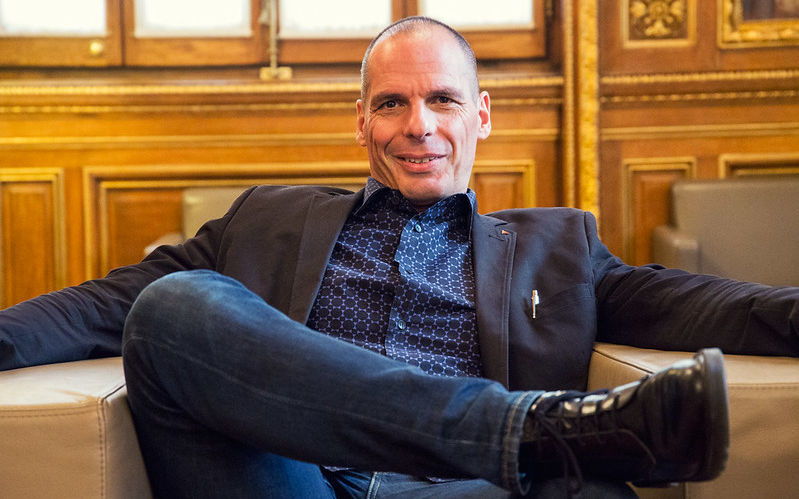In a multipolar world, the ‘third pole’ is not Europe, but Global South
May 6, 2023
Ukraine war and new cold war against China have accelerated the re-emergence of the old non-aligned movement of developing nations.
Yanis Varoufakis was late to the game. In a keynote speech given in Cuba early this year, the former Greek socialist finance minister called on the Global South to build a new non-aligned movement in the emerging multipolar world.
But already, the West’s proxy war in Ukraine against Russia and its new cold war against China have greatly accelerated this new, or rather renewed, non-alignment of developing nations. While those in charge in Washington and Brussels – and their echo-chamber press – still think what they say goes, or at least represents good world opinion against the bad propaganda of rogue nations, the rest of the world clearly doesn’t see things that way.
Developing countries, many of which have built substantial economic resources and political pull in recent decades on the world stage, have their own interests to defend, values to uphold and stories to tell. They choose their own paths and speak in their own voices; the West can no longer dictate the terms of global conflicts and controversies. The way Western politicians such as Emmanuel Macron and Kamala Harris were lectured to by heads of state in several African countries during recent visits gave the game away.
Macron is wrong. Europe will not be “the third pole” in this emerging multipolar world. The Ukraine war has made Europe even more dependent on the United States, economically and militarily. Rather, the third pole belongs to the Global South. Nothing has shown this more clearly than its reactions to the Ukraine war and the emerging West vs China cold war.
In early March last year, at an emergency session of the United Nations General Assembly, 141 nations voted overwhelmingly in favour of a resolution against Russia’s “aggression against Ukraine”, 35 abstained and only five voted against.
The West declared triumphantly the unity not only of its own, but that of the world against Russia. But later in the same month and in the same assembly, 52 states, almost all from the Global South, refused to support Western sanctions against Russia. A month later, 82 states declined to join Western efforts to eject Russia from the UN Human Rights Council.
Quite simply, the first general assembly vote was political theatre, a morality play, which was also prompted by the shock of the brutal invasion. But the latter two votes were realpolitik in action.
The Global South remembered it was only yesterday that Western countries hoarded Covid-19 vaccines in a system of distribution that had been described as “global apartheid”. They also remembered the victims, in past decades, of invasions and arbitrary sanctions imposed by various Nato countries with utter impunity, in direct contravention of international law.
The West may have launched unprecedented sanctions in an attempt to bring down the Russian economy and the Putin regime, but the rest of the world sees nothing wrong with continuing business with the Russians. Maybe the West can extend those sanctions to countries that won’t play along. The US already has the Countering America’s Adversaries Through Sanctions Act. It would be unwise to take on “bystander” nations, as it would only encourage more of them to group together for collective security or resistance.
“We do not consider that [Ukraine] concerns us,” said Mexican President Andres Manuel Lopez Obrador.
Indian Foreign Minister Subrahmanyam Jaishankar explained nicely the general resentment of the Global South and why it refused to join in the West’s ostracism of Russia. “Europe’s problems are the world’s problems, but that the world’s problems are not Europe’s problems,” he said.
I once had to write a whole column explaining that perspective of the non-West, but Jaishankar said it all in a single sentence. The sheer elegance, which so exposes the arrogance of the West!
If the collective West can’t kill off Russia, they can forget about collapsing China, with its much bigger and more sophisticated economy that is fully integrated with every corner of the global economy.
During a recent visit to Ottawa, Albert Park, chief economist of the Asian Development Bank, delivered a gentle warning.
“It’s great for Canada to develop closer ties with all of the countries in the [Asia-Pacific] region,” he said. “For a lot of leaders in Asia, they don’t want to have to pick sides.”
He was referring to Canada’s new pivot to the Asia-Pacific as official foreign policy, which however, has yet to clearly define its economic, diplomatic and military components.
First published in the South China Morning Post May 1, 2023


